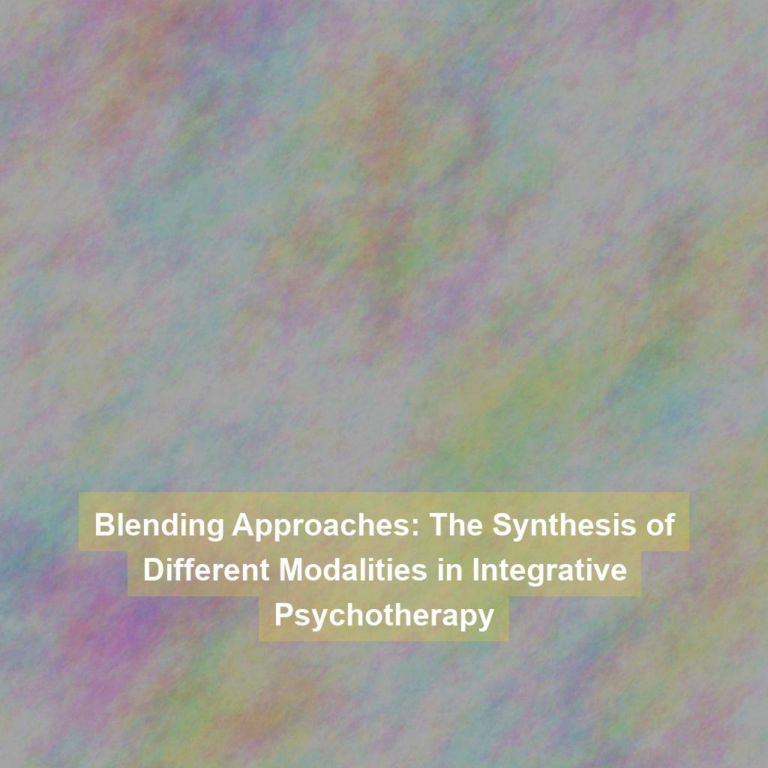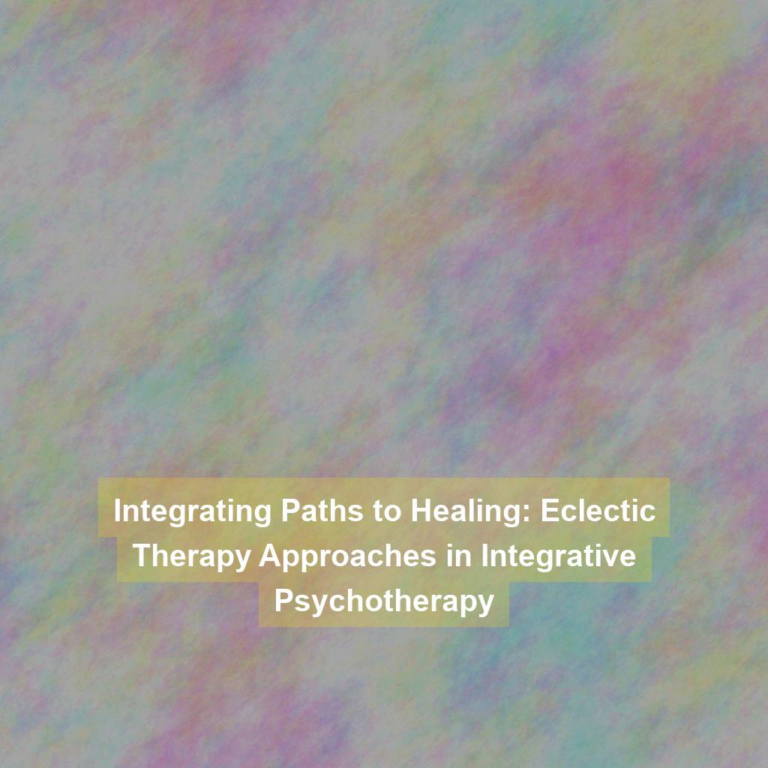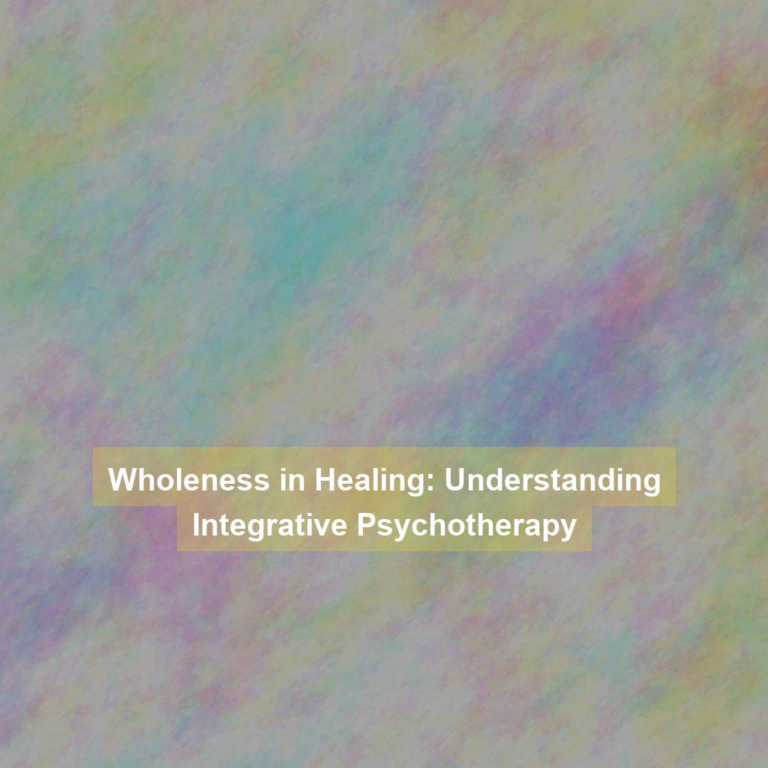Did you know that over 80% of psychotherapists in the United States consider themselves to be integrative or eclectic in their approach to therapy? With such a vast array of treatment modalities available, it’s no wonder that therapists are increasingly drawing from diverse theoretical frameworks and techniques to tailor their treatment to each client’s unique needs.
The flexibility and adaptability of eclectic therapy approaches have led to a rich tapestry of interventions that can be customized to address the complexities of individual clients. As you explore the landscape of integrative psychotherapy, you’ll discover the fascinating diversity of eclectic therapy approaches and how they are being harnessed to meet the varied needs of clients in today’s complex world.
Historical Roots of Eclectic Therapy Approaches
How did eclectic therapy approaches come to evolve into the integrative psychotherapy we know today?
The historical roots of eclectic therapy approaches can be traced back to the early 20th century when psychologists and therapists began to explore and integrate various therapeutic techniques and theories. The emergence of eclectic therapy was a response to the limitations of sticking to a single theoretical orientation. Practitioners started to recognize that no single approach could address the complexity of human problems comprehensively. Influential figures such as Sigmund Freud, Carl Rogers, and Albert Ellis paved the way for an open-minded approach to therapy, encouraging the incorporation of diverse methods and principles.
As the field of psychology continued to evolve, the concept of integrative psychotherapy emerged. This approach aimed to combine the most effective elements of different therapeutic models while acknowledging the importance of tailoring treatment to individual needs. The historical development of eclectic therapy into integrative psychotherapy reflects a shift towards a more flexible and inclusive approach to addressing psychological challenges, ultimately enriching the therapeutic landscape with diverse perspectives and techniques.
Theoretical Frameworks in Eclectic Psychotherapy
Theoretical frameworks in eclectic psychotherapy encompass a diverse range of psychological theories and approaches that are integrated to provide a comprehensive and adaptable treatment approach. When you consider the theoretical frameworks within eclectic psychotherapy, it’s essential to understand that this approach draws from various schools of thought, including but not limited to psychodynamic, humanistic, cognitive-behavioral, and existential theories. By integrating these diverse theoretical perspectives, eclectic psychotherapy aims to tailor treatment to the unique needs of each individual. This means that as a therapist, you have the flexibility to draw from different theoretical frameworks based on the client’s specific challenges and preferences, allowing for a more personalized and effective treatment approach.
The integration of multiple theoretical frameworks in eclectic psychotherapy also acknowledges the complexity of human experiences and behaviors. It recognizes that no single theory can fully capture the richness and diversity of human psychological processes. Instead, by drawing from various theories, eclectic psychotherapy provides a more holistic understanding of the client’s issues and a broader range of interventions to address them. This integrative approach allows you to be responsive to the dynamic and multifaceted nature of human psychology, enhancing your ability to support clients in their unique therapeutic journey.
Integration of Diverse Treatment Modalities
The integration of diverse treatment modalities in eclectic psychotherapy allows therapists to adapt their approach based on the specific needs and preferences of each client, enhancing the effectiveness and personalization of the treatment.
By drawing from various therapeutic techniques and theories, therapists can tailor their interventions to address the unique challenges and goals of each individual. This integration may involve combining elements of cognitive-behavioral therapy, psychodynamic therapy, humanistic therapy, and other modalities to create a customized treatment approach that resonates with the client.
For example, a therapist may integrate mindfulness-based techniques from acceptance and commitment therapy with emotion-focused strategies from gestalt therapy to help a client manage anxiety and improve emotional regulation. This flexibility in integrating diverse treatment modalities allows therapists to meet the client where they’re and collaboratively work towards positive change.
Furthermore, it acknowledges the complexity of human experience and the importance of considering multiple perspectives in the therapeutic process. Overall, the integration of diverse treatment modalities enriches the therapeutic experience and promotes holistic well-being for the client.
Case Studies: Application of Eclectic Approaches
As you explore the application of eclectic approaches in case studies, you’ll witness how therapists adeptly utilize a combination of diverse treatment modalities to address the specific needs and goals of each client, fostering a personalized and effective therapeutic experience.
For instance, consider a case where a client presents with symptoms of anxiety and depression stemming from childhood trauma. An eclectic therapist may draw from cognitive-behavioral techniques to address the client’s negative thought patterns and behavioral coping strategies, while also incorporating elements of psychodynamic therapy to explore and process the underlying trauma. This tailored approach recognizes that the client’s needs are multifaceted and may require a blend of interventions to achieve meaningful progress.
In another case, a client struggling with relationship issues may benefit from a combination of emotionally focused therapy to improve interpersonal dynamics and mindfulness-based practices to enhance self-awareness and regulation. These examples illustrate how eclectic approaches can be applied in real-world scenarios, showcasing the flexibility and adaptability of integrative psychotherapy in meeting the unique needs of diverse clients.
Ethical Considerations in Eclectic Therapy Integration
When integrating eclectic therapy approaches, it’s crucial to consider the ethical implications of blending diverse treatment modalities to ensure the well-being and autonomy of the client. As a therapist, you must prioritize the client’s best interests, safety, and rights when integrating different therapeutic techniques. It’s essential to obtain informed consent from the client, ensuring they understand the potential risks and benefits of the eclectic approach. Transparent communication about the rationale behind integrating various modalities and the potential outcomes is vital for maintaining trust and respect within the therapeutic relationship.
Confidentiality is another crucial ethical consideration. When utilizing eclectic therapy, it’s imperative to maintain the confidentiality of the client’s information across all integrated modalities. Additionally, ensuring that all therapeutic interventions align with the client’s cultural and personal values is paramount. This involves continuously assessing the impact of the eclectic approach on the client’s beliefs, identity, and cultural background.
Furthermore, it’s essential to stay informed about the latest developments and research in each integrated modality to ensure competence and proficiency in providing diverse therapeutic interventions. Adhering to ethical standards and seeking supervision or consultation when integrating eclectic approaches is fundamental in providing high-quality care while upholding ethical principles.
Conclusion
So, as you can see, eclectic therapy approaches in integrative psychotherapy offer a wide range of options for tailoring treatment to individual clients. By drawing on historical roots, diverse theoretical frameworks, and the integration of various treatment modalities, practitioners are able to provide personalized and effective care.
Through case studies and ethical considerations, the application of eclectic approaches is shown to be both practical and ethical. It’s clear that the diversity of eclectic therapy approaches enriches the field of integrative psychotherapy.







